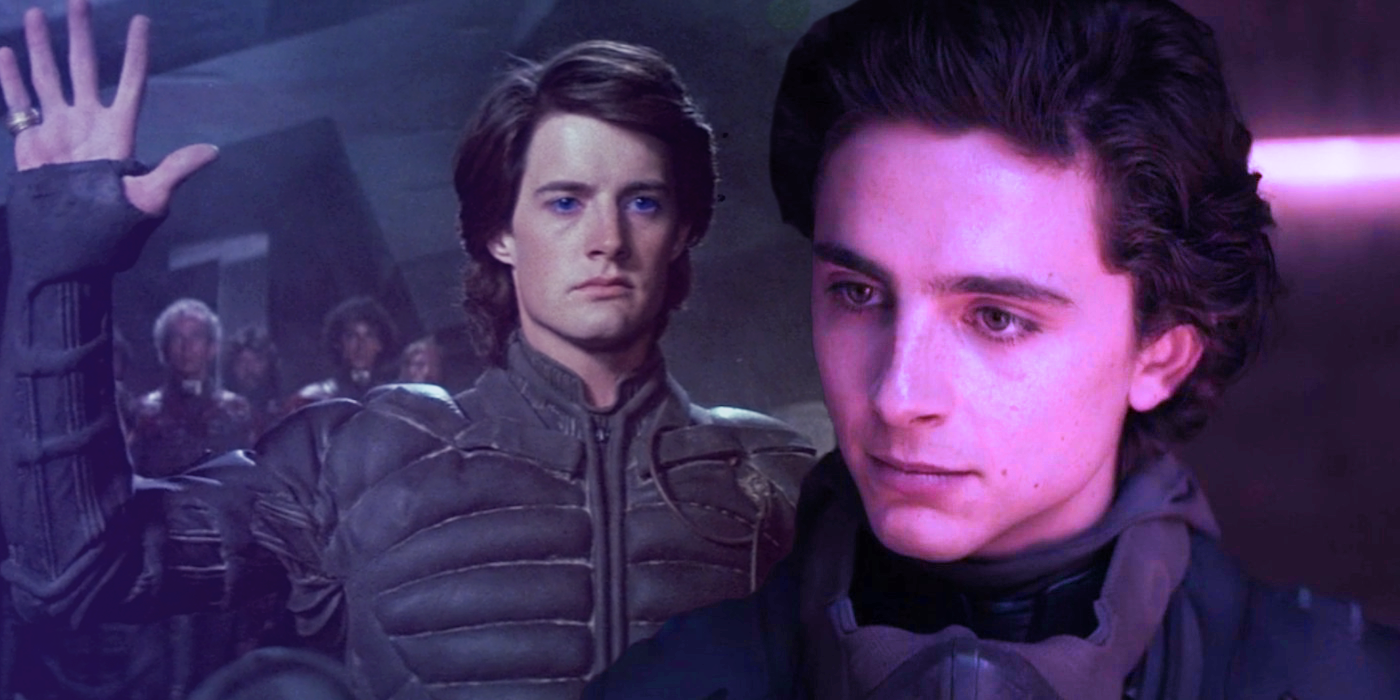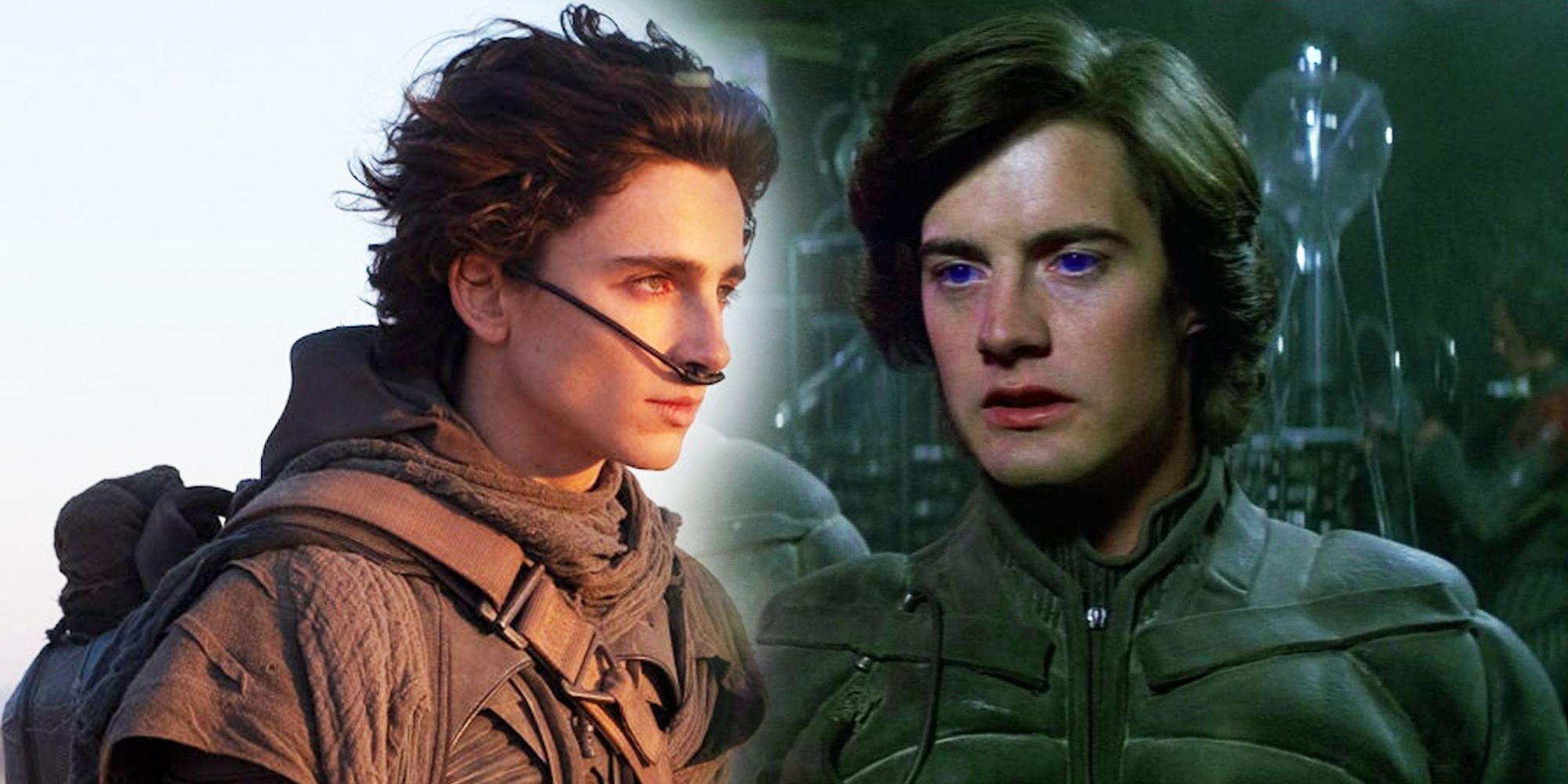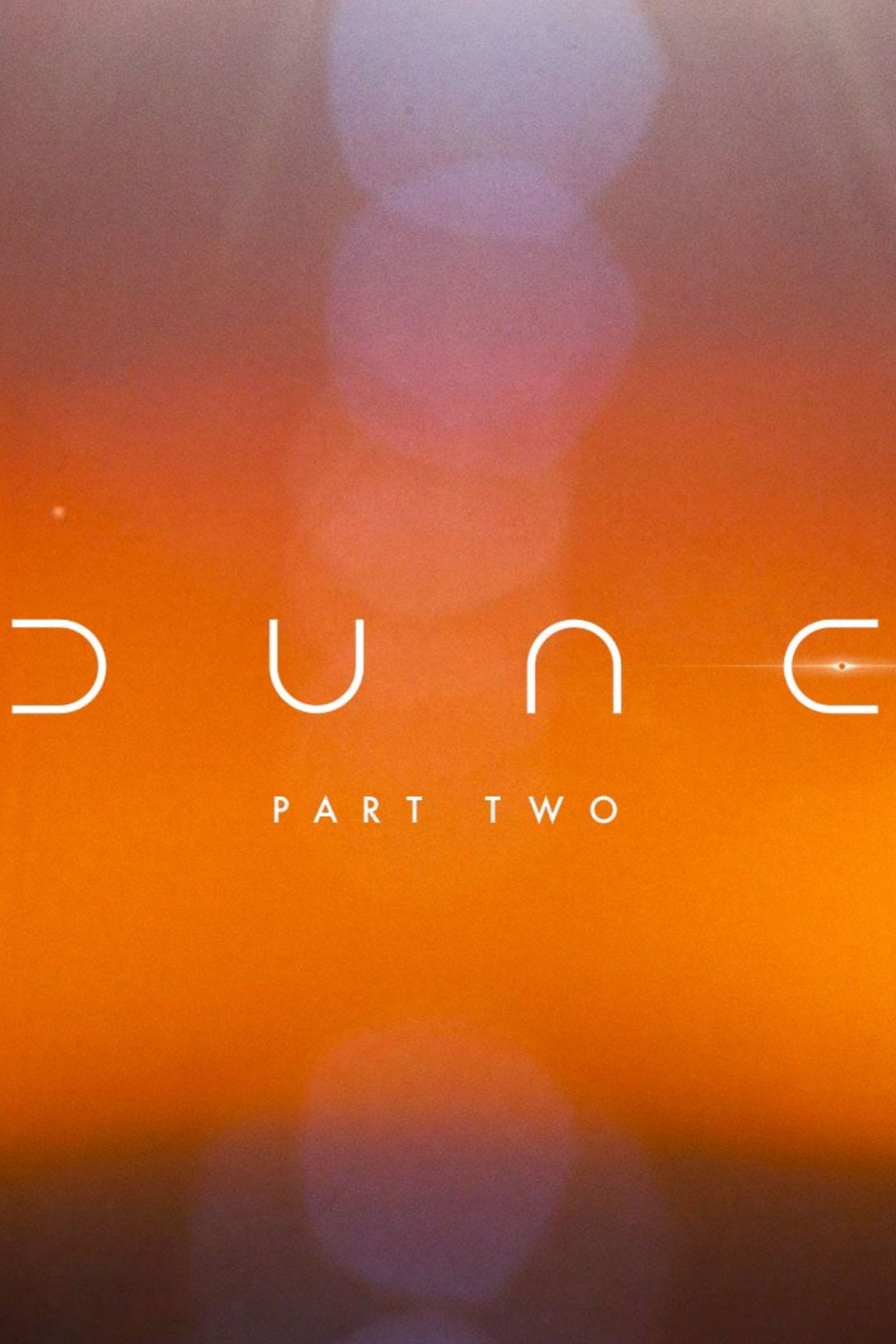Denis Villeneuve's adaptation of Dune proves that David Lynch's 1984 original was always doomed to come up short. The 1965 novel by Frank Herbert was long seen as unfilmable due to its sweeping story and complex world. Prior to Lynch's adaptation, another director, Alejandro Jodorowsky, tried and failed to bring Herbert's novel to the big screen. Jodorowsky mounted an effort to bring Dune to life, but Lynch would ultimately be the first one to bring the book to screen. However, it wasn't well-received.
The director's 1984 film was maligned upon release and even Lynch himself has disowned Dune. In recent years, Lynch's version has become something of a cult classic, with many appreciating its campy take on the source material. Still, 1984's Dune isn't seen as a perfect adaptation and Denis Villeneuve is looking to rectify that with his two-part take on the source material. The French-Canadian director only agreed to make Dune if he could split the novel in half and now a definitive version of the source material may have finally come along.
Many have praised Denis Villeneuve's version of Dune as the definitive one, including the author's own son Brian Herbert, and the 2021 movie proves that Lynch's 1984 version of the film was always destined to disappoint. Dune simply contains too much story for one film to tell adequately. At a runtime of two hours and 17 minutes, it was an impossible task to ask the 1984 adaptation of Dune to cram all of Herbert's story into the film. Dune 2021 has a runtime of two hours and 36 minutes, surpassing Lynch's own film while only telling roughly half the story.
Ultimately, Dune's cliffhanger ending is the perfect stopping point for the story of Paul Atreides (Timothée Chalamet), setting him up as a messianic hero in the first half before Villeneuve's next film (and possibly a third one) deconstructs the idea of the hero's journey entirely. Even with a critical reappraisal of Lynch's version of Dune, it's easy to see now that the 1984 movie had the odds stacked against it.
The story of Dune and the world of Arrakis is simply too complex to be told in one film - the splitting of the Dune's plot into two parts ultimately makes sense for it as a story. While plenty of studios have employed this in various franchises to simply cash in on a property's popularity, it's clear from Dune's ending that the story is one that lends itself not only to Villeneuve's more serious take on the source material, but also the time necessary to truly ruminate on the various themes at play in Herbert's books, something Lynch's version simply did not have the time to do.



